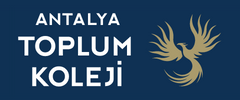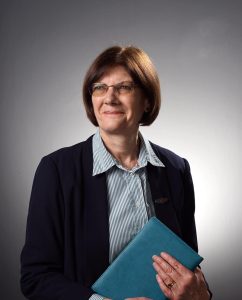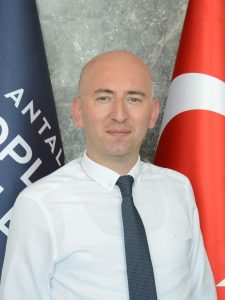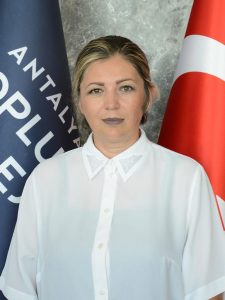HIGH SCHOOL
Antalya Toplum Koleji Anatolian High School aims to provide its students with problem solving, communication, written and oral expression, critical approach and research skills with the world-renowned International General Secondary Education Certificate (IGCSE) and International Baccalaureate Diploma Program (IBDP).
At the end of high school, our students graduate with national (MEB) and International General Secondary Education Certificate (IGCSE) in the 9th and 10th grades, International Baccalaureate Diploma Program (IBDP) in the11th and 12th grades.
CAMBRIDGE IGCSE
INTERNATIONAL GENERAL CERTIFICATE OF SECONDARY EDUCATION
Cambridge University International General Secondary Education Certificate Program is among the education programs accepted all over the world.
Our school is accredited by the Cambridge International Examinations Centre.
Cambridge IGCSE programs aim to provide students with many skills such as knowledge comprehension, verbal skills, problem solving skills, entrepreneurship, team leadership and inquisitive personality for their academic development.
The success achieved at the end of the program forms the basis for many studies such as the International Baccalaureate Program at a higher level. Within the scope of IGCSE, students complete the two-year program in the 9th and 10th Grade curriculum. At the end of the program, an eccentric examination process awaits students. Exams are evaluated in England and students get grades between A*-G grade scales. Students must have at least 5 IGCSE certificates in order to continue to the 11th grade, which is the upper class. All courses taught within the scope of IGCSE are taught in English.
CAMBRIDGE IGCSE 0990
İLK DİL İNGİLİZCE
CAMBRIDGE IGCSE 0993
İKİNCİ DİL İNGİLİZCE
CAMBRIDGE IGCSE 0513
İLK DİL TÜRKÇE
CAMBRIDGE IGCSE 7159
İLK DİL ALMANCA
CAMBRIDGE IGCSE 0457
GLOBAL PERSPECTIVES
CAMBRIDGE IGCSE 0983
INFO. & COMM. TECH.
CAMBRIDGE IGCSE 0980
MATHEMATICS
CAMBRIDGE IGCSE 0973
CO-ORDINATED SCIENCES
IB
WHAT IS THE IBDP?
The IB (International Baccalaureate) diploma is a two-year academic program open to students aged 16 to 19. The International Baccalaureate programs aim to raise people who think critically, are curious, eager to learn, and are socially conscious. Developing students' intercultural skills and mutual respect ensures that they have the essential ingredients to take part in a world that strives for a more peaceful coexistence.
The IB program offers students the advantage of a modern life view and a universal culture, as well as an internationally recognized diploma. It also allows students to study at prestigious universities in the United States, the United Kingdom, Germany, the Netherlands, Italy, and Canada.
IB was started at Geneva International School in 1968 by a group of entrepreneurial educators to continue their education with a common curriculum for high school students whose families change places and countries frequently. Today, the IB Program is a program in which approximately 2,000,000 students attend 5478 schools in 159 countries around the world. In Turkey, a total of 98 schools, including 9 state schools and 89 private schools, are included in this program.
The IB Diploma Program consists of 3 DP core subjects and 6 group subjects. Three core subjects: Theory of Knowledge (TOK), the 4000-word Graduation Thesis chosen from one of the six subject areas, and CAS (Creativity, Activity, Service) Creativity, Activity, and Community Service. Students in the IB Diploma Program take six courses from each specified group.
What are the Advantages of IB?
What are IB Course Groups?
Studies in Language and Literature
Language Acquisition
Individuals and Societies
Sciences
Mathematics
The Arts
Instead of choosing an art lesson, students can take one more subject from the first five groups.
Students can take three or four subjects at the higher level and the others at the standard level
How Do We Prepare Our Students For The IB Program?
The preparation for the IBDP program starts in the 9th grade at our school. Grade 9 and 10 students regularly attend information meetings about the IBDP program. The IB learner profile is taught to our students in the ninth grade, and it is hoped that our students will enter the program fully equipped, having made up for any deficiencies in accordance with the IB learner profile, to establish a close relationship with the program and be accepted into it in the eleventh grade.
IBDP program information meetings are held eight times a year with our 10th-grade students. The first four meetings are about explaining the details of the program to our students; starting with the fourth meeting, our parents are included in the meetings, and with the support of our psychological counselling unit, university processes are discussed with our students and parents, and subject selections are made in line with our students' predispositions, goals, interests, and skills.
eTwinning
It's My Future, It's My Job E-Twinning Project
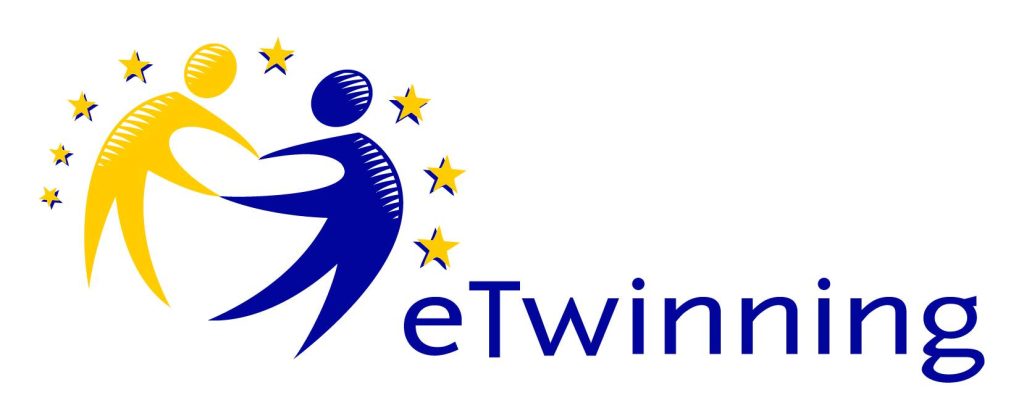
Turkan Richardson, the English teacher at our school, is conducting the eTwinning project during the 2022-2023 academic year, while the project's founders are Celal Yıldız from Antalya and Ayfer Beadirova from Bulgaria. The project involves a total of 23 schools, including 10 from Turkey, 5 from Romania, 3 from the Republic of Moldova, 3 from Greece, 1 from Bulgaria, and 1 from Lithuania. The project, titled "IT'S MY FUTURE AND IT'S MY JOB," will also involve seven volunteer students alongside our English teacher. The project aims to utilize the opportunities provided by technology, particularly Web 2.0 tools, through collaboration between students and teachers. The objectives of the project include keeping up with current technology, sharing with peers from other schools, and presenting their work in a digital environment. Our students will have the opportunity to learn while having fun and share their knowledge in a social setting.
The IT'S MY FUTURE AND IT'S MY JOB project aims to provide students with information about the professions they will choose in the future, create awareness about different careers, and empower them to make career choices based on their own will. Through the planned activities, students will exchange information with their peers.
At the end of the project, the products produced throughout the process will be exhibited, a digital exhibition will be created, and all the activities carried out in the project will be showcased.
At the end of the project, the products produced throughout the process will be exhibited, a digital exhibition will be created, and all the activities carried out in the project will be showcased.
We wish our students and teachers success in the project work.
Timeline

1. Lesson: 8.40 – 9.20
Mola: 9.20 – 9.40
2. Ders: 9.40 – 10.20
Kahvaltı: 10.20 – 10.40
3. Ders: 10.40 – 11.20
4. Ders: 11.25 – 12.05
5. Ders: 12.10 – 12.50
6. Ders: 12.55 – 13.35
Öğle Yemeği: 13.35 – 14.05
7. Lesson: 14.05 – 14.45
8. Ders: 14.50 – 15.30
Mola: 15.30 – 15.45
9. Lesson: 15.45 – 16.25
Student Council
The Student Council is an organization run by students and supervised by responsible teachers. Council board with elections held at the beginning of each academic year. The purpose of the student council is to give students the opportunity to develop leadership by organizing and running school events and service projects. In addition to planning events that contribute to school spirit and community well-being, the student council is the voice of the student community. They help share students' ideas, interests, and concerns with the school-wide community.
The function of the student council is based on parliamentary procedures. Ideas are presented, voted and approved by the school president. Any student interested in leadership, organizational behavior, event planning or being more involved in the running of the school can participate.
Class Representatives
Beren Tahal (5-A) , Biricik Mercan Özgün (5-B), Nil Güzel (5-B), Yousef Abdelmajed (5-C), Lara Leyla Fahraghi Ahrabi (6-A), Selin Aslanova (6-A), Ömer Şahin (6-A), Fatih Mehmet Küçükoğlu (6-B), Dawson Young (6-B), Ömer Azimov (7-A), Azra Çetin (7-A), Erhan Akun (7-B), Dawson Young (7-B), Ceylin Nehir Antepli (8-A), Zeki Deniz Çakmaktepe (8-B), Ayla Ergül (9-A), Vard Lahham (9-B), Berk Priniotakis (10-A), Beril Polat (10-B), Tuana Karademir (11-A), Seza Bak (11-B), Ömer Barlas Tabakçı (12-A)
Guardians' Responsibilities
Dear Guardians,
As Antalya Toplum Koleji, we request your full and continuous support from our parents in order to ensure that our students receive a better quality education and we thank you for your sensitivity.
Our school starts education at 08:40 in the morning. For this reason, we kindly ask the parents of our students who do not use the shuttle to make sure that our students arrive at school at least 10 minutes before. Our students who arrive late disrupt their education and the education of other students in the class. Our students, who make a habit of being late for whatever reason, are both warned by us and draw the reaction of the class. A student who comes to school 3 times late is recorded as absent for half a day. Students using the school bus should be at the waiting area 2-3 minutes before the bus arrives.
If our student will not be able to come to school for any reason or will arrive late, please call the school or inform the administrators by e-mail. If our student is using a shuttle, please call the shuttle driver and give information. Inform the school about our students who will not get on the bus after school and will be picked up by someone else. In order not to be counted as unexcused absences, our parents should request in writing the permission they want to take for their children, except for emergencies.
On the days when there are Physical Education classes, they should have their tracksuits and spare uniforms with them according to the weather conditions. Our students should be sent to school in a way that their attire is suitable for the school, their hair is clean and combed, and without exaggerated jewelry. In ceremonies and events, our students should be sent to school as notified to their parents.
Personal care of our students should be done completely and regularly. Particular attention should be paid to this issue, especially for students who have entered the age of puberty.
Our institutions expect our parents to participate in national holidays and other ceremonies, events and seminars held in our schools. Especially on national holidays, ensure that our students participate in the ceremonies, except in extraordinary situations. M.E.B. According to the regulations, we are not authorized to allow our students on national holidays and our school expects our students to attend the ceremonies. Therefore, on such days, our parents should not request leave for our students.
It is an element that will contribute to the education of our students by following the articles we send to you with our students, the information we send to your e-mail addresses, the messages sent to your mobile phones and the shares sent to the Parent Information System. You can also follow our website and social media posts to get information about the activities that are done or will be done at school.
Our students' breakfast, lunch and afternoon snack needs are met by our school. In addition, foods in accordance with the Canteen Regulations are sold in our school canteen. Ensuring that our students go to bed on time, especially on weekdays, is extremely important for their next day to be productive.
Our parents should keep the time that our students spend in front of the computer, especially in front of the computer, and the time they spend in front of the television. More importantly, parents should definitely check whether the games they play on the computer or the sites they visit, and the programs they watch on television are appropriate for their age. You can get detailed information about these issues in the guidance section.
